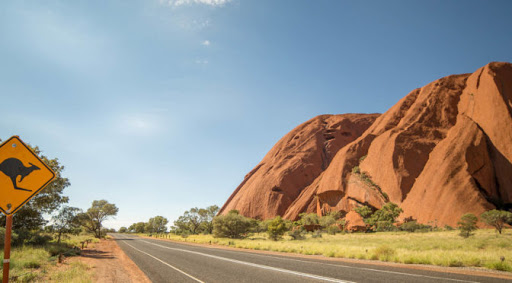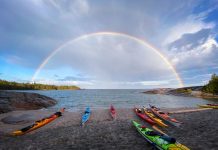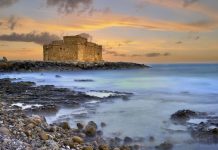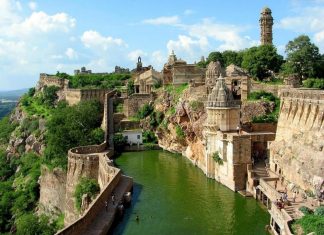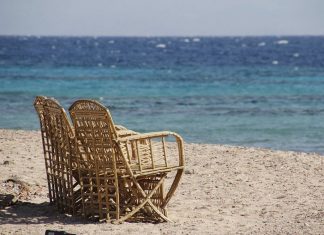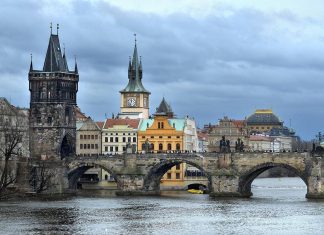In recent years, Australia has moved far ahead in the field of tourism, and the organization and accommodation of travelers are keeping pace with this rapid development. In this safe and friendly country, tourists practically do not face problems. International class hotels and restaurants, public transport and tourist information centers can be found everywhere.
The following pages contain useful information for all tourists. The sections Security Service and Healthcare focus on some recommended precautions, Banks and Exchanges answer all significant financial questions. There is also a section covering in detail the Australian telephone and postal systems.
When to go
The northern half of the country is located in the tropical zone, and this means the presence of rainy and hot seasons. The hot season falls from May to October, and this is considered the best time to visit the country. During the rainy season, the weather conditions are hot and humid. and many areas are inaccessible due to floods. However, for wildlife lovers, there are areas such as Kakadu National Park that are especially picturesque at this time of year.
The southern half of the continent has a temperate climate, and the seasons are exactly the opposite of the same time in Europe and North America. Victoria and Tasmania can be somewhat cloudy and rainy in winter, but they are extremely colorful and fragrant in autumn. The wide southern coast is a popular tourist destination during the summer months, at this time a warm climate with a mild breeze prevails here. But avoid sparsely populated areas in summer, as temperatures here can reach extreme values. The ski season in the Australian Alps lasts from June to September. The states of South Australia and Western Australia abound with bright placers of wild flowers from September to December.
Entry requirements
Tourists in Australia must have a passport with a validity period calculated for a longer period than the estimated time of stay. All tourists, except New Zealand passport holders, must also have a visa issued in their own country. To obtain a visa, contact travel agents or airlines, the Australian Embassy or by mail. Tourists will be asked to present a return ticket and a sufficient amount of money for the duration of their stay. While in Australia, you can extend your visa by contacting the Immigration Department, but tourist visas are rarely issued for more than a year.
Information for TOURISTS
The Australian Tourism Commission is the central tourism agency, but each state and territory has its own tourism organization. Tourist centers in major cities provide comprehensive information, and they are often the best place to get advice on choosing a thematic excursion and book a hotel.
Information kiosks can also be found at airports and shopping malls. In small towns, tourist offices are often located in large shops, galleries or gas stations – watch out for blue and white logos.
Opening hours and entrance fee
Most of the main tourist sites are open daily. Smaller malls, galleries and other venues are often closed at the beginning of the week. Compared to Europe, admission prices are mostly moderate, and in some cases admission is free. The exceptions are major tourist exhibitions in art galleries, zoological gardens, theme parks and special facilities such as Sovereign Hill in Ballarat. The best time for excursions is the middle of the week, on weekends the locals can compete with you.
Etiquette
Although Australian society as a whole is quite democratic, there are several unwritten rules that tourists should follow. Eating and drinking on public transport, in taxis, as well as in many shops and galleries is not recommended. The style of clothing can be loose, especially in summer when the weather is hot, but some bars and restaurants may require men to wear shirts, and prohibit jeans and sports shoes. On many beaches there are no restrictions when swimming, and women are not forbidden to be topless on the beach.
In Australia, it is customary to tip a restaurant with good service in the amount of 10% of the final bill, as well as a couple of dollars to taxi drivers, hotel porters and bartenders.
Smoking is prohibited in all public buildings, public transport, taxis, cafes and restaurants, as well as in most shops. When booking a hotel, it is better to ask about the possibility of smoking in advance.
Disabled travelers
In Australia, there is everything in order to best accommodate people traveling in a wheelchair. Many hotels, restaurants, tourism facilities, cinemas, airports and shopping malls are specially equipped for chairs, and guide dogs for the blind are also always welcome.
Traditionally, public transport is a problem for people in wheelchairs. For more information, it is better to contact the transport authorities of each state. Tourist information centers and offices can provide maps with marked objects accessible for wheelchairs.
One of the most useful organizations for disabled travelers is the National Information Communication Network (NICAN) in Canberra. This database provides information about facilities for the disabled in various parts of the country. The network also has information about many publications specifically written for disabled people traveling in Australia.
Traveling with children
Australia, with its beautiful sandy beaches, rich nature, boundless spaces and the opportunity to experience adventures, is an ideal place for children. Many hotels readily accept children as guests and can usually provide everything you need: baby beds, high chairs and, in rare cases, even child care services. However, some of the smaller hotels with bed and breakfast declare themselves child-free zones.
Restaurants are also usually supportive of children and offer children’s portions, although in more expensive establishments it is advisable to make inquiries first. City shops and most tourist sites, as a rule, have rooms for feeding and changing diapers.
Parents traveling with children also enjoy a number of discounts on air transport, buses, trains, sea and river vessels, on which children are allowed.
Children under the age of four traveling in a car, according to the Australian road rules, must be fastened in special child seats. It is important to make the necessary preparations in advance. Here for Babe provides seatbelts, as well as folding chairs and baby strollers; delivery can be made directly to airports or hotels. Car rental firms in major cities usually provide seatbelts to customers for a small additional fee.
Traveling students
The International Student Identification Card (ISIC) is available to all students worldwide for the duration of their studies. The ISIC card must be purchased in the student’s country of residence at the office of the Student Travel Association (STA). In Australia, the card can only be purchased by students registered with Australian educational institutions.
Cardholders enjoy a significant discount on overseas air travel and a 2.5% discount on domestic airlines in Australia. There is also a 15 percent discount on private bus travel and discounts on cinema tickets, galleries, museums and most other tourist sites.

